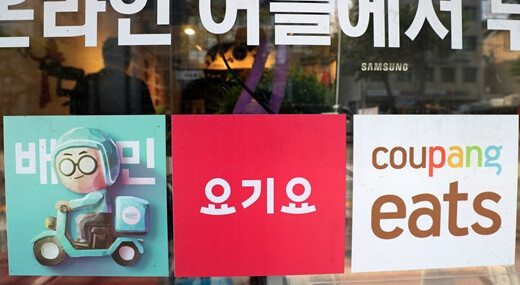
Seoul, South Korea – After months of negotiations, South Korea's major food delivery platforms, Baemin and Coupang Eats, have reached a partial agreement to lower their commission rates. However, the deal has been met with mixed reactions from restaurant owners, with some expressing dissatisfaction and even walking out of the negotiations.
Under the new agreement, the maximum commission rate for Baemin and Coupang Eats will be reduced from 9.8% to 7.8%. However, delivery fees for restaurant owners will increase by up to 500 won per order. The commission rates will be tiered based on a restaurant's sales volume.
A Compromise, but Not for Everyone
While the agreement represents a step forward in addressing concerns about high commission rates, it has not satisfied all stakeholders. Some restaurant owner associations have voiced their opposition, arguing that the deal does not go far enough. They pointed out that for some businesses, especially those with higher sales volumes, the new agreement could actually lead to increased costs.
The disagreement among restaurant owners has resulted in a divided agreement. Two of the four participating associations, the Korea Federation of Small Businesses and the Korea Association of Commerce and Industry, supported the deal. However, the Korea Franchise Association and the Korea Foodservice Industry Association rejected the agreement and walked out of the negotiations.
Government Pressure and Industry Pushback
The South Korean government played a significant role in facilitating the agreement, warning of potential legislation to cap commission rates if a voluntary agreement could not be reached. This pressure from the government likely influenced the decision by Baemin and Coupang Eats to make concessions.
However, some critics argue that the agreement is more favorable to the delivery platforms than to restaurant owners. They point out that the new commission rate of 7.8% is actually higher than the 6.8% rate that Baemin had implemented earlier this year before it was temporarily raised. Additionally, the increase in delivery fees means that many restaurant owners will end up paying more overall.
What's Next?
With the agreement now in place, the focus will shift to its implementation and the long-term impact on the food delivery industry. Restaurant owners who are dissatisfied with the agreement have indicated that they will continue to push for further regulatory measures, such as stricter caps on commission rates.
The outcome of this agreement highlights the ongoing power struggle between food delivery platforms and restaurant owners. As the industry continues to evolve, it remains to be seen whether this agreement will provide a sustainable solution or if further changes will be necessary.
[Copyright (c) Global Economic Times. All Rights Reserved.]




























